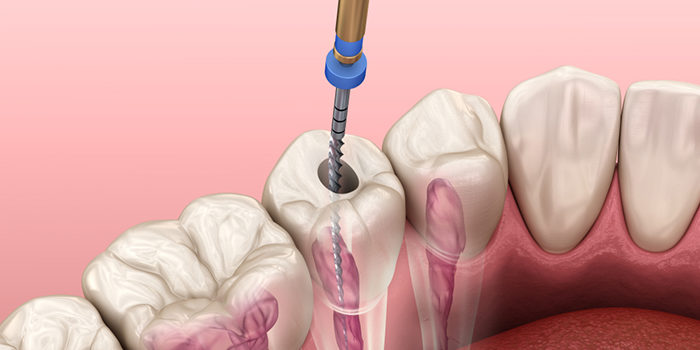Tooth pain is one of the most unbearable types of discomfort a person can experience. Whether it stems from a cavity, exposed nerve, or infection, the intense throbbing can stop you in your tracks. Many people search for quick fixes and fast relief, hoping to find the magic solution that can kill tooth pain nerve in 3 seconds permanently. But is that really possible? Or is it just another internet myth?
In this article, we’ll explore the truth behind this viral claim, what causes nerve pain in teeth, and practical ways to manage or eliminate the pain for good.
Understanding Tooth Nerve Pain
To understand how to treat it, you need to understand what causes tooth nerve pain. Inside every tooth lies a pulp chamber filled with nerves and blood vessels. When this pulp becomes inflamed due to decay, trauma, or infection, it sends pain signals to your brain. This is why the pain often feels sharp, sudden, and sometimes unbearable.
The idea of being able to kill tooth pain nerve in 3 seconds permanently sounds appealing. After all, no one wants to live with dental agony. But before you jump into DIY solutions or unverified hacks, it’s important to understand the risk behind quick-fix claims.
The Myth of 3-Second Pain Elimination
Let’s get straight to the point: there is currently no scientifically proven method that can literally kill tooth pain nerve in 3 seconds permanently in a safe and medically approved way without professional dental intervention.
That said, there are a few strategies and remedies that can provide almost instant relief while you wait for permanent treatment.
Emergency Home Remedies for Instant Relief
While no method can completely eliminate the nerve in 3 seconds without a dentist, certain home remedies can reduce the pain drastically and give the illusion of instant relief. Here are some effective methods:
1. Clove Oil
Clove oil contains eugenol, a natural anesthetic and antibacterial compound. Applying a small amount directly to the affected tooth can numb the area temporarily.
- Dab clove oil on a cotton ball
- Place it directly on the painful area
- Hold for a few minutes
Some users claim this feels like it can kill tooth pain nerve in 3 seconds permanently, though the relief is usually temporary.

2. Salt Water Rinse
Salt water is a natural disinfectant and can help reduce inflammation.
- Mix 1 teaspoon of salt in a glass of warm water
- Swish it in your mouth for 30 seconds
- Repeat as needed
It doesn’t destroy the nerve but can reduce swelling and relieve pressure, helping with pain management.
3. Cold Compress
Apply a cold pack to the side of your face for 15 minutes. This reduces blood flow to the area and numbs the pain.
While it won’t kill tooth pain nerve in 3 seconds permanently, it’s one of the fastest ways to dull intense pain.
Why You Need Professional Dental Care
If you’re looking to kill tooth pain nerve in 3 seconds permanently, a root canal is your most realistic solution. This procedure involves:
- Removing the infected or inflamed nerve tissue
- Cleaning out the pulp chamber
- Sealing the tooth to prevent future infection
After a root canal, the nerve is gone, and so is the pain—permanently. This is the only proven and medically safe way to eliminate tooth nerve pain at the root (literally).
Dangers of DIY Nerve Killing Techniques
If you’ve seen online claims about using alcohol, crushed painkillers, or even super glue to fix tooth pain—don’t try them. These methods are not only ineffective but can cause:
- Chemical burns
- Tissue damage
- Infections
- Further complications requiring emergency care
Attempting to kill tooth pain nerve in 3 seconds permanently using unapproved methods may do more harm than good and could cost you more in dental bills later.
Long-Term Solutions for Tooth Nerve Pain
If you’re frequently experiencing nerve-related pain in your teeth, consider these long-term strategies:
1. Get Regular Dental Checkups
Prevention is the best medicine. A dentist can spot problems before they reach the nerve.
2. Improve Oral Hygiene
Brush twice daily, floss, and use mouthwash. Keeping your mouth clean reduces the chances of cavities reaching the nerve.
3. Address Grinding or Clenching
Bruxism can wear down teeth and expose nerves. A night guard might help if you grind your teeth in your sleep.
4. Treat Cavities Early
A small filling today can save you from a root canal tomorrow.
When to Seek Emergency Dental Help
If you’re experiencing any of the following symptoms, don’t delay:
- Swollen gums or face
- Fever along with tooth pain
- Persistent throbbing pain for over 48 hours
- Sensitivity to hot and cold that doesn’t go away
These are signs that the infection may be spreading and that you need immediate professional care. Waiting too long could result in tooth loss or systemic infection.
Natural Supplements and Preventative Care
Some natural supplements can support dental health and reduce inflammation, including:
- Vitamin C (boosts immunity)
- Calcium & Vitamin D (strengthen teeth)
- Turmeric (anti-inflammatory)
- CoQ10 (promotes gum health)
Though these won’t kill tooth pain nerve in 3 seconds permanently, they can help keep your teeth healthier in the long run.
Conclusion: The Real Way to Kill Tooth Pain Nerve in 3 Seconds Permanently
While the phrase “kill tooth pain nerve in 3 seconds permanently” grabs attention, the reality is more nuanced. There is no magical at-home method to destroy a nerve in three seconds, but:
- Some remedies can provide near-instant relief
- A root canal is the only real permanent solution
- Good oral hygiene and regular checkups are your best defense
So, while it’s tempting to look for shortcuts when you’re in pain, your safest path to lasting relief is to visit a licensed dentist. Quick fixes can help in the moment, but nothing beats professional treatment for long-term oral health.
Final Tip
Don’t wait until the pain is unbearable. At the first sign of discomfort, take action. Whether that’s applying clove oil, rinsing with salt water, or scheduling a dental appointment—your teeth (and nerves) will thank you.



